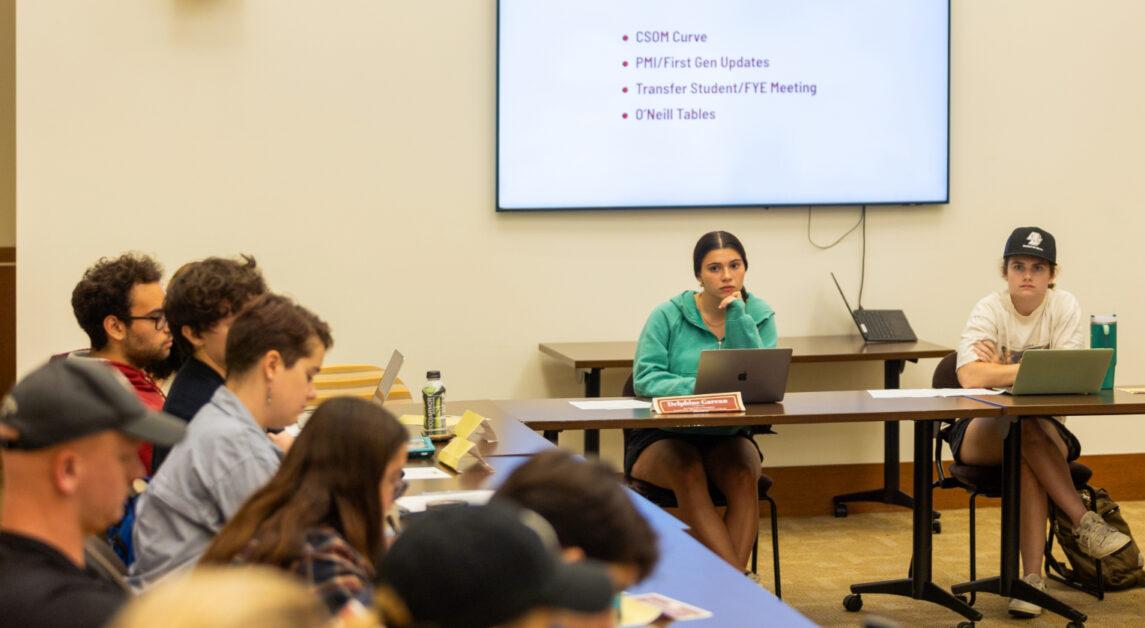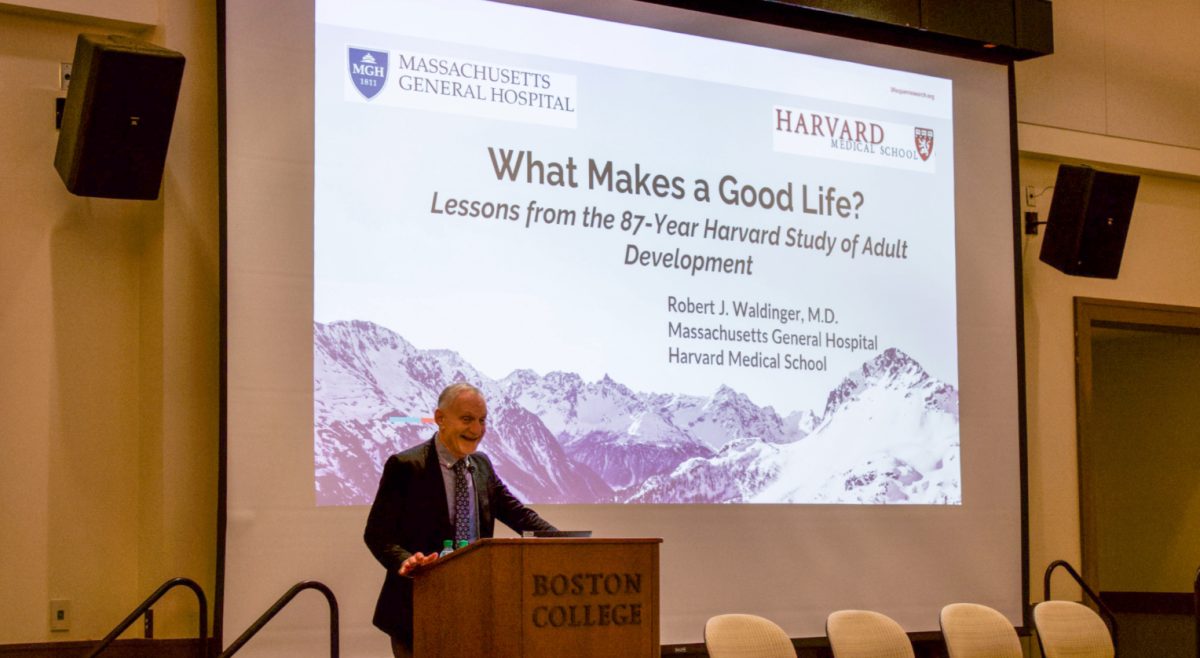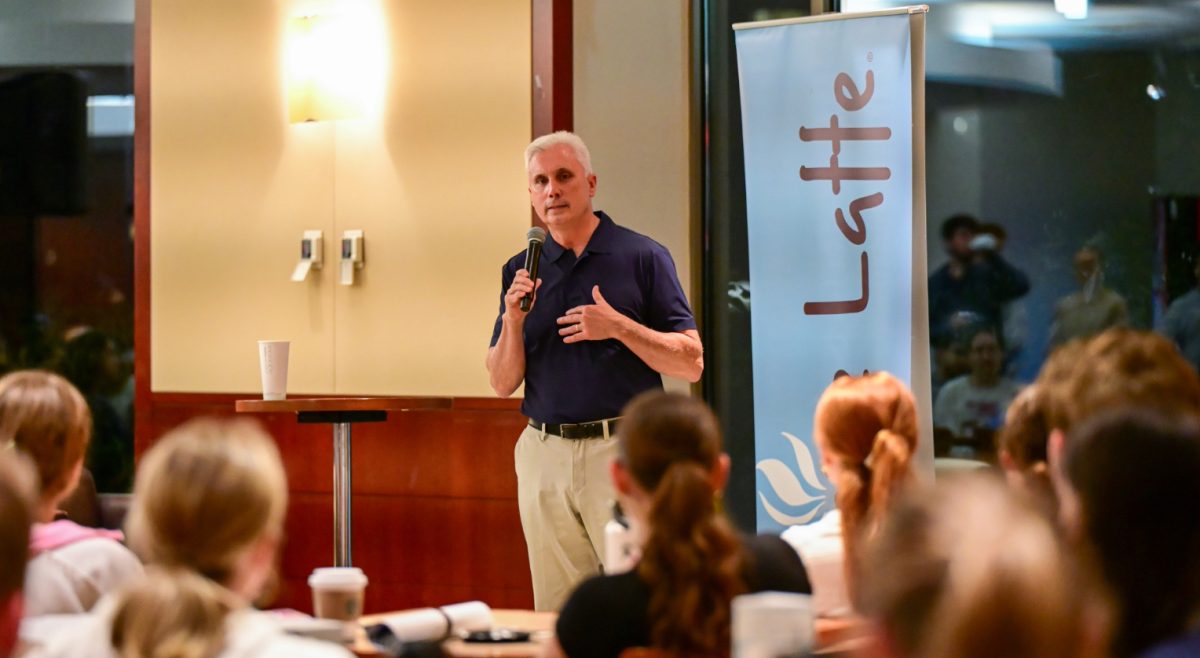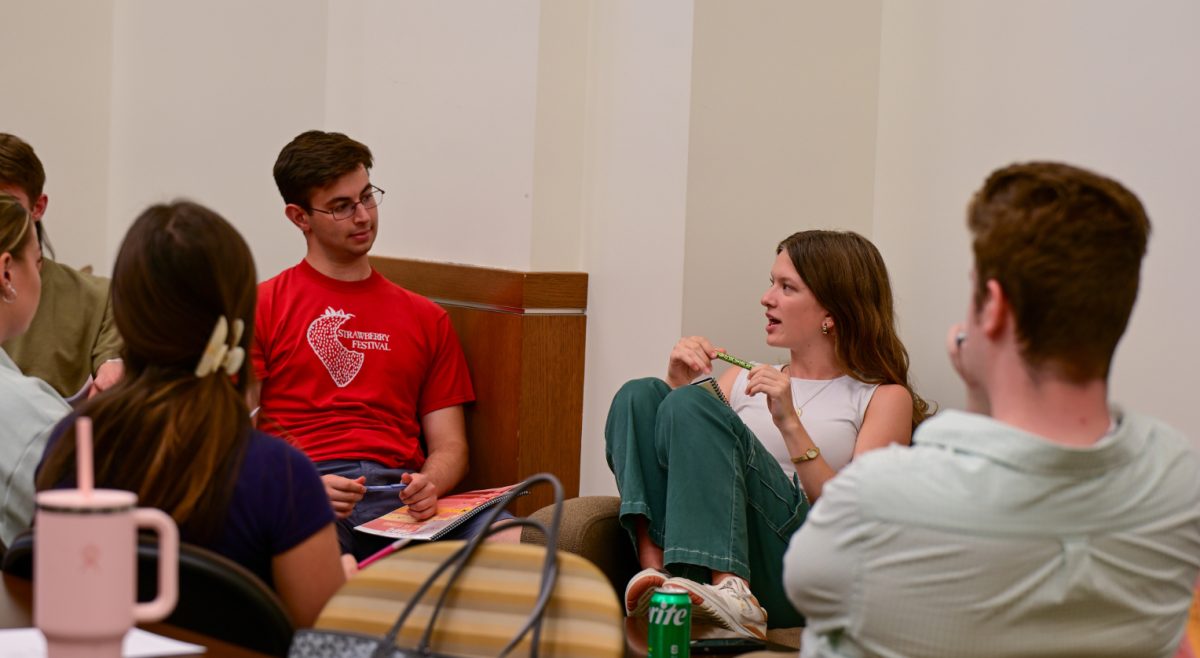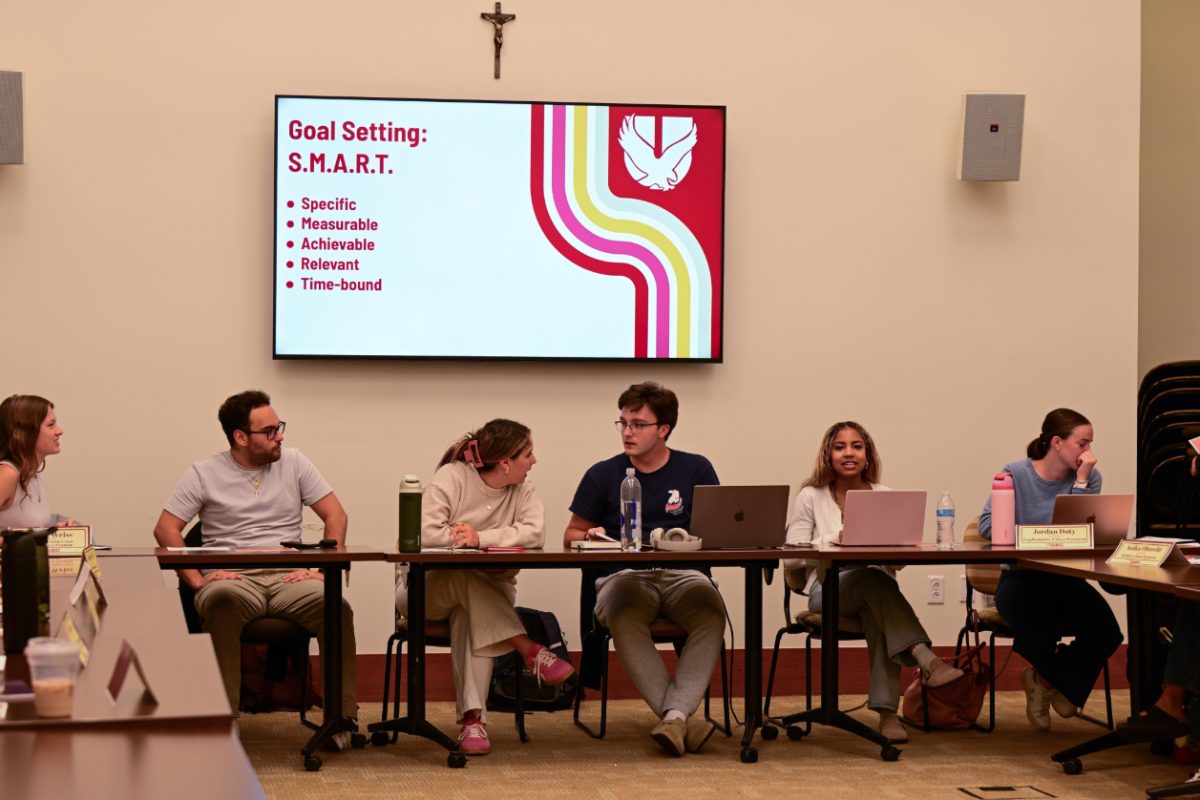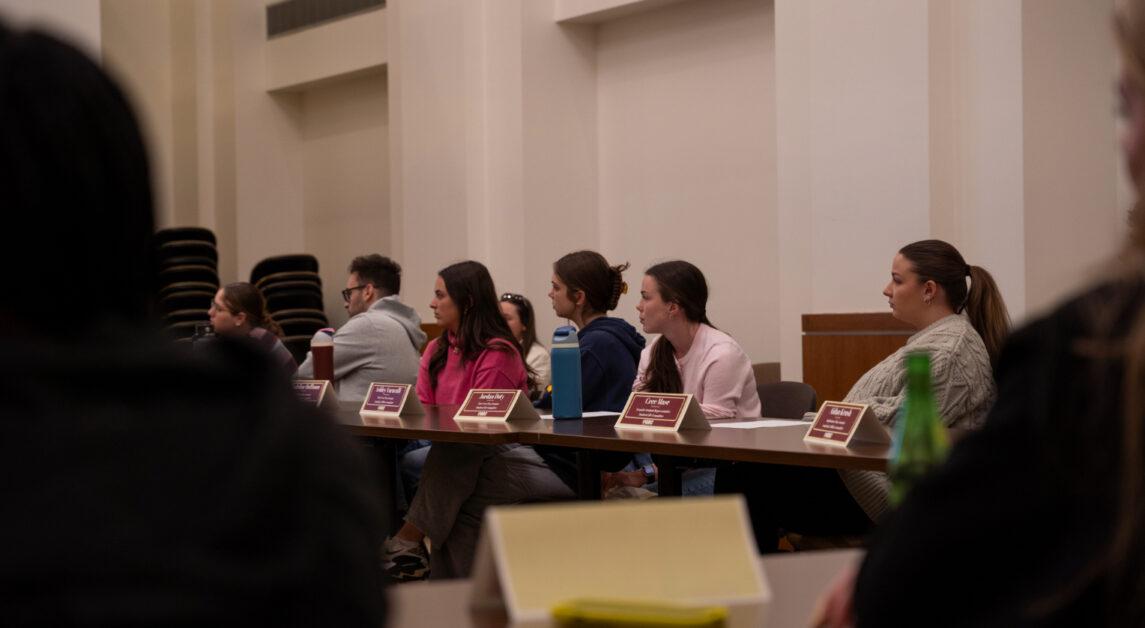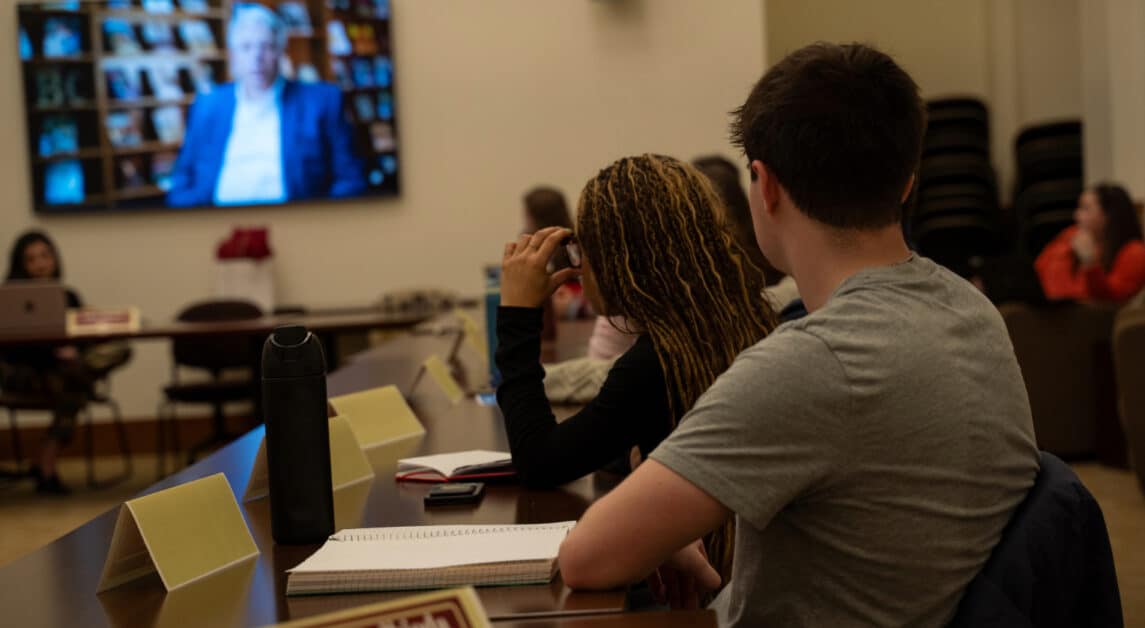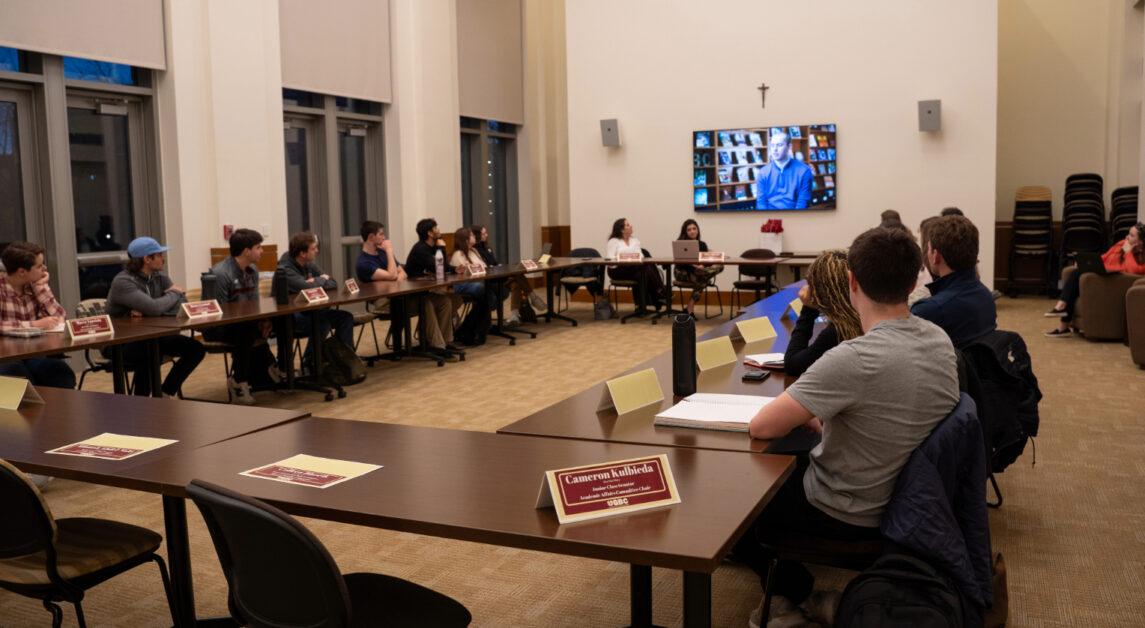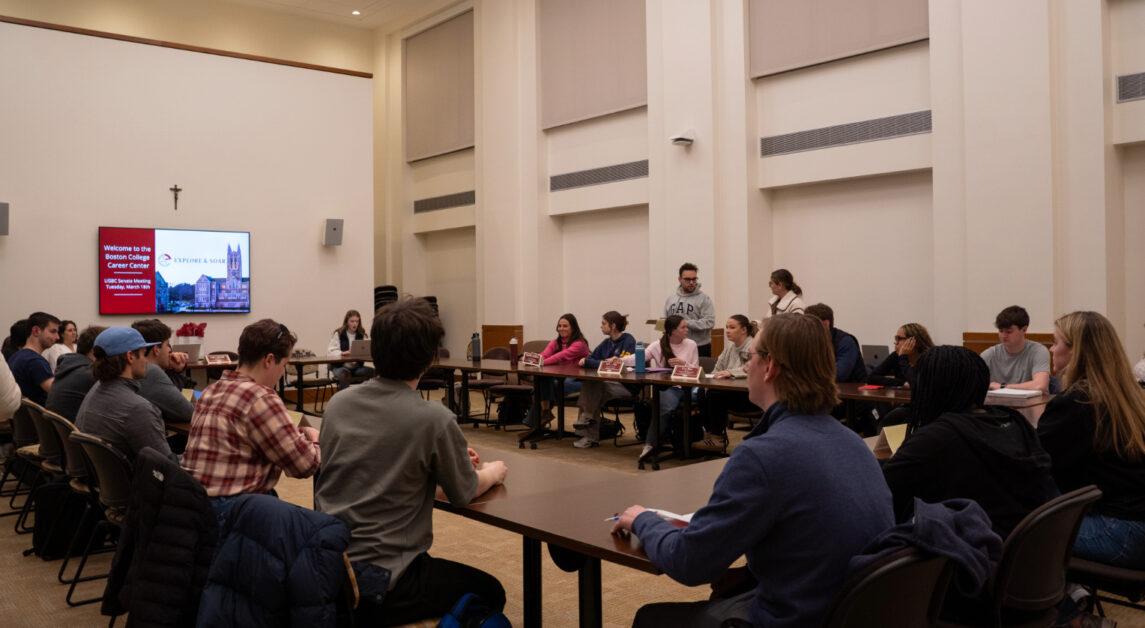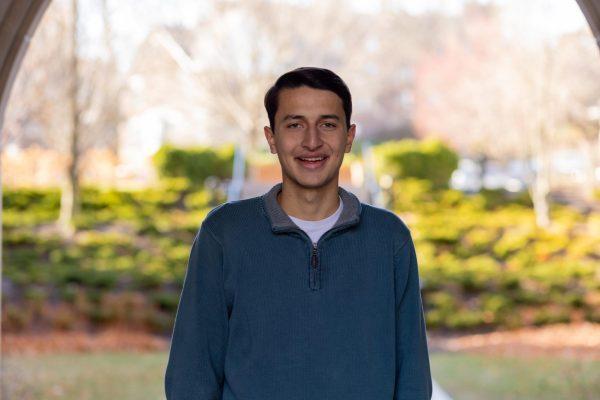For many students, it may seem like emergency blue lights on campus are perpetually broken or even obsolete now that almost everyone has a cellphone.
But in recent years, the security cameras built into these safety posts have proven useful for investigating and stopping crime, according to Katie Garrigan, UGBC vice president and MCAS ’25.
“All the new blue lights have security cameras, and [the Boston College Police Department] said honestly, that’s been the better use of them in recent years,” Garrigan said. “Not students actually using them to get assistance, but to get security footage for different things.”
Starting this month, BCPD is partnering with an outside contractor to service emergency blue lights, Garrigan said, which they hope will lead to faster repair times.
“I think what they’re dealing with right now is that Facilities is a little bit too inundated with maintenance requests, so the blue lights have kind of gone on the back burner,” Garrigan said.
Some of the blue lights are out of order because they have been programmed to call 911 instead of the BCPD emergency number, but BCPD is working to resolve this and retrofit older blue lights with cameras, Garrigan added.
In addition, Garrigan said she raised the prospect of installing emergency blue lights on Commonwealth Avenue and Chestnut Hill Driveway—both streets that students who live in 2000 Commonwealth Avenue frequently take to get to and from campus—amid concerns from student senators about potential safety concerns.
But because these streets are outside BC’s campus, BCPD officers would have to seek approval from the Boston Police Department (BPD) and the Commonwealth of Massachusetts before moving forward, Garrigan noted.
According to Garrigan, BCPD reiterated that they have a close relationship with BPD and the Commonwealth of Massachusetts, so she said she is hopeful they can install new lights soon.
Cristina Gregory, student senator and MCAS ’26, shared updates on an initiative she spearheaded to expand American Sign Language (ASL) course offerings at BC.
ASL classes count toward the Morrissey College of Arts and Sciences’ language requirement, according to the student services website, but the courses are taught virtually by faculty from Tufts University.
Despite some initial setbacks, Gregory said she hopes to work with the Lynch School of Education and Human Development and the Council for Students with Disabilities to establish a more complete ASL program at BC.
“We’re trying to expand on what BC’s offering is for their ASL program,” Gregory said. “We’re hoping to get it to be the level of the full program that would count for the MCAS requirement.”
As part of an ongoing Senate initiative to lower the costs of required course materials, Mariame Diop, student senator and MCAS ’27, said she worked alongside other student senators on the Academic Affairs Committee and the University Council on Teaching to draft a question on end-of-semester course evaluations that aims to gauge how useful textbooks and other course materials are for students.
“If you were required to purchase any course materials, were they necessary for your learning?” the question tentatively reads.
The aim of the question, Diop said, is to help faculty consider finding less expensive alternatives to textbooks.
“The main goal of this is to form discussion about the cost of books and collect demographic information to see which teachers are maybe assigning books that aren’t necessary or if there are other means by which the teachers are allowing students to access the textbooks,” Diop said.

